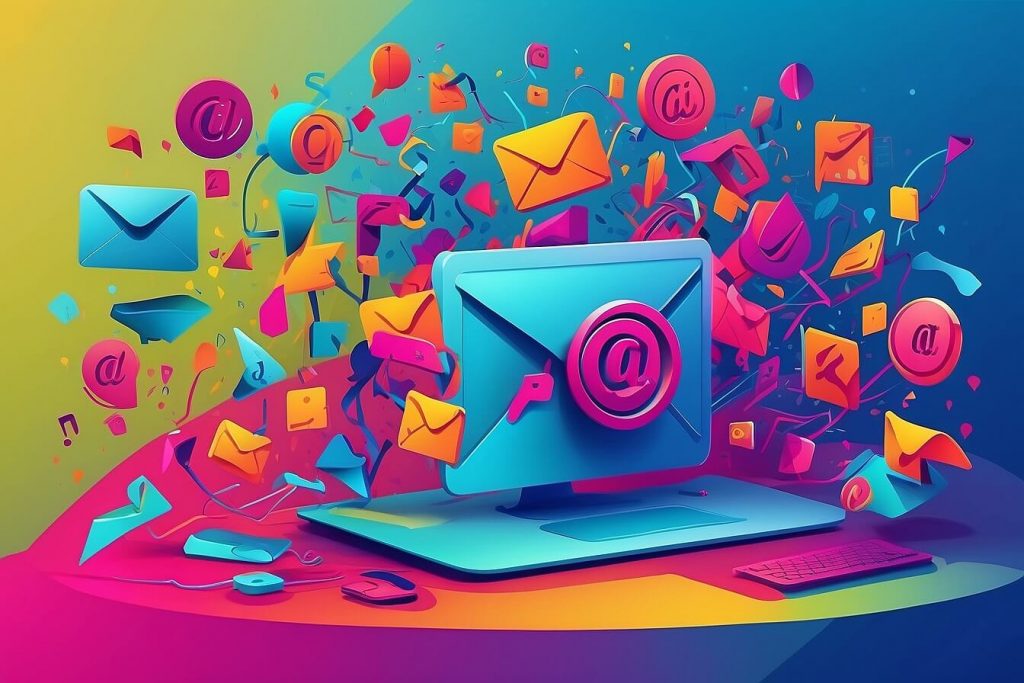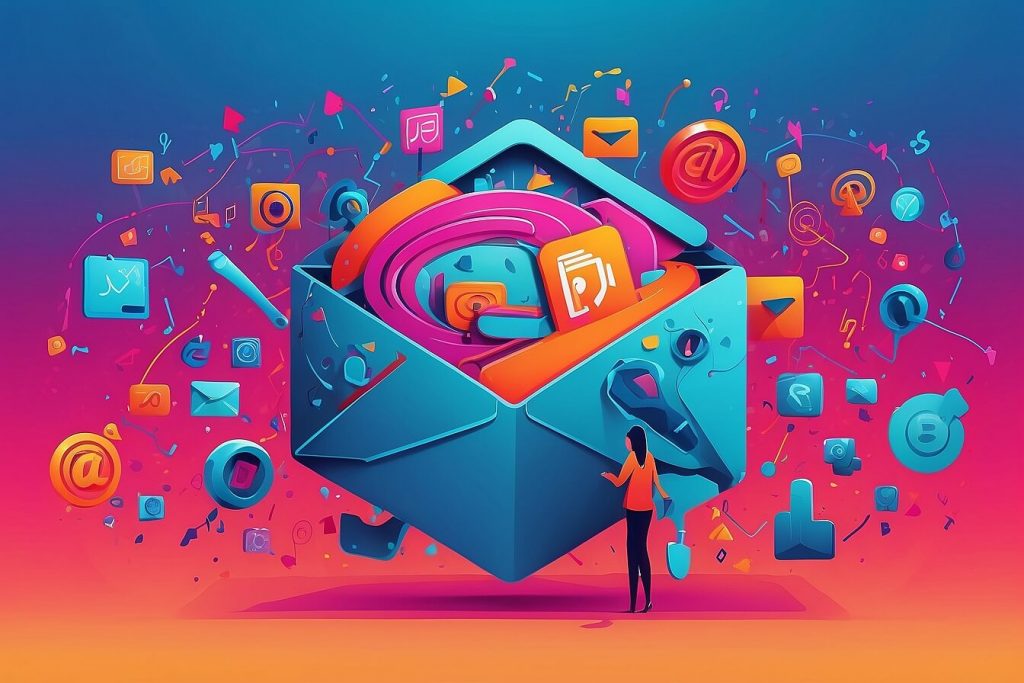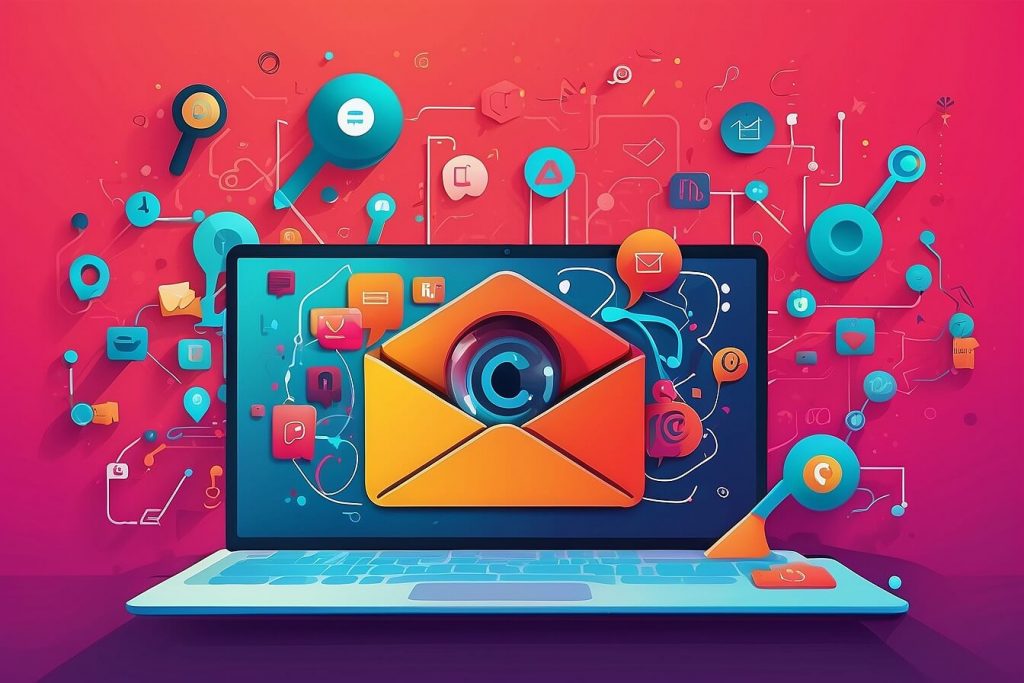Understanding the Role of AI in Email Campaigns
Artificial Intelligence (AI) has increasingly become a vital component in the realm of email campaigns. Its role extends beyond just automation and personalization, as it can significantly enhance the overall effectiveness of email marketing strategies. With its advanced algorithms and machine learning capabilities, AI can analyze vast amounts of customer data to gain valuable insights and make informed decisions.
In the context of email campaigns, AI can assist marketers in various ways. It can optimize the overall customer experience by identifying the best time to send emails based on individual preferences and behaviors. AI can also aid in segmenting audiences, allowing marketers to deliver highly targeted and relevant content to different customer groups. Moreover, AI-powered algorithms can continuously learn from customer interactions and refine email campaign strategies in real time, resulting in improved engagement rates and higher conversion rates. As AI continues to evolve, its role in email campaigns is expected to expand even further, revolutionizing the way marketers reach and connect with their target audience.
The Importance of Customer Journey Mapping in Email Marketing
Customer journey mapping plays a crucial role in email marketing. It allows businesses to gain a deeper understanding of their customers’ interactions and experiences throughout the buying process. By visualizing the different touchpoints and stages of the customer journey, marketers can identify opportunities for improvement and create more targeted and personalized email campaigns.
Through customer journey mapping, businesses can identify bottlenecks or gaps in their email marketing strategies. This approach helps them to optimize the customer experience at every step, from the initial contact to making a purchase. By understanding the customer’s needs, preferences, and pain points, marketers can tailor their email content and timing to better meet these requirements. Additionally, customer journey mapping enables marketers to identify cross-selling or upselling opportunities, leading to increased customer engagement and conversion rates. Ultimately, customer journey mapping is a powerful tool that allows businesses to enhance their email marketing efforts and provide a seamless experience for their customers.
Key Elements of an Effective Customer Journey Map
In order to create an effective customer journey map, there are several key elements that need to be considered. Firstly, it is crucial to thoroughly understand and analyze your target audience. This entails conducting thorough market research and collecting data on customer behaviors, preferences, and pain points. By gaining a deep understanding of your customers, you can accurately map out their journey and identify the touchpoints where they interact with your brand.
Secondly, it is essential to identify the various stages of the customer journey. This typically includes stages such as awareness, consideration, purchase, and retention. Each stage presents different opportunities and challenges, and mapping them out helps you understand the customer’s mindset and expectations at each stage. With this information, you can align your email marketing efforts to effectively engage customers and guide them through their journey.
How AI Enhances Customer Journey Mapping in Email Campaigns
AI technology has revolutionized many aspects of the digital marketing landscape, and its impact on customer journey mapping in email campaigns is no exception. One key way in which AI enhances this process is through its ability to analyze vast amounts of data quickly and accurately. By leveraging machine learning algorithms, AI can identify patterns and trends that would be impossible for humans to detect on their own. This allows email marketers to gain valuable insights into their customers’ behaviors and preferences, helping them to better understand the various stages of the customer journey.
In addition, AI-powered customer journey mapping tools can provide real-time recommendations and predictions based on the analysis of customer data. These recommendations can help email marketers optimize their campaigns by identifying the best times to send emails, the most relevant content to include, and even the ideal subject lines. By providing these personalized recommendations, AI technology enables marketers to deliver highly targeted email experiences to their customers, increasing the chances of engagement and conversion. Overall, AI’s ability to analyze data and provide actionable insights is a game-changer in customer journey mapping, helping email campaigns become more effective and personalized than ever before.
Leveraging AI-Powered Analytics for Improved Email Campaign Performance
Leveraging AI-powered analytics can greatly enhance the performance of email campaigns. By harnessing the power of artificial intelligence, marketers can gain insights into various aspects of their campaigns, such as open rates, click-through rates, and customer interactions. These analytics provide valuable data that can help identify trends, patterns, and customer preferences, enabling marketers to make data-driven decisions and optimize their email campaigns for better results.
One of the key benefits of using AI-powered analytics is the ability to segment customers based on their behavior and preferences. With AI algorithms analyzing vast amounts of data, marketers can create highly targeted segments and personalize their email content accordingly. This level of personalization increases the relevance of the emails, leading to higher engagement and conversion rates. Furthermore, AI-powered analytics can track customer interactions in real-time, allowing marketers to adjust their email campaigns on the fly and deliver personalized content at the right moment. With these insights, marketers can ensure that their email campaigns are not only effective but also optimized for maximum performance.
Personalization Strategies Using AI in Email Campaigns
Personalization is a key strategy in email marketing that aims to engage customers on a more individual level. By tailoring emails to meet the specific needs and preferences of each recipient, companies can increase open rates, click-through rates, and ultimately drive conversions. However, manually personalizing emails for every subscriber can be a time-consuming and labor-intensive task. This is where artificial intelligence (AI) comes into play. With AI-powered algorithms and machine learning capabilities, marketers can automate and streamline the personalization process, enhancing customer experiences and improving campaign performance.
AI can analyze vast amounts of data, including purchase history, browsing behavior, demographics, and engagement patterns, to create customer profiles and segmentation. Instead of guessing what content might resonate with each individual, AI can predict their preferences and interests, enabling marketers to deliver highly targeted and relevant emails. From subject lines and body content to product recommendations and call-to-action buttons, every element of an email can be personalized based on AI-driven insights. This level of personalization not only increases the likelihood of conversion but also strengthens the overall customer-brand relationship by showing customers that their unique needs are valued and understood. With AI’s ability to continuously learn and adapt, personalization strategies in email campaigns can continually evolve and improve, delivering even better results over time.
Optimizing Email Content with AI-Powered Customer Insights
Email marketing is a powerful tool for businesses to engage with their customers. However, creating effective email content that resonates with recipients can be challenging. This is where AI-powered customer insights can play a crucial role. By leveraging AI technology, businesses can gain valuable insights into customer preferences, behaviors, and interests. This data can then be used to optimize email content and ensure that it is tailored to the specific needs and interests of each individual recipient.
One of the main advantages of using AI-powered customer insights for optimizing email content is the ability to personalize messages at scale. With AI algorithms analyzing vast amounts of data, businesses can segment their audience and deliver highly relevant content to each segment. This personalized approach not only increases the chances of recipients engaging with the email but also enhances their overall customer experience. By understanding the preferences and interests of each recipient, businesses can craft compelling email content that captures their attention and drives action.
Integrating AI-Powered Customer Journey Mapping Tools into Email Campaigns
Integrating AI-powered customer journey mapping tools into email campaigns can provide significant benefits for businesses. These tools utilize advanced algorithms and machine learning capabilities to analyze customer data and create comprehensive maps of the customer journey. By integrating AI-powered mapping tools into email campaigns, businesses can gain valuable insights into customer behavior and preferences, allowing them to create more personalized and targeted email content.
One key advantage of integrating AI-powered customer journey mapping tools is the ability to identify the most effective touchpoints in the customer journey. These tools can analyze large amounts of data and identify patterns and trends, helping businesses understand where customers are most likely to engage and convert. By leveraging this information, businesses can optimize their email campaigns by sending targeted messages at the right time and through the right channels, improving overall engagement and conversion rates. Additionally, AI-powered mapping tools can provide real-time analytics and recommendations, allowing businesses to make data-driven decisions and continuously refine their email campaigns for better performance.
Case Studies: Successful Implementation of AI-Powered Customer Journey Mapping in Email Marketing
In recent years, many businesses have embraced the power of AI to enhance their email marketing campaigns. One particular area where AI has shown great potential is in customer journey mapping. By leveraging AI-powered tools, companies have been able to gain deeper insights into their customers’ behavior and preferences, leading to more personalized and targeted email communications.
For example, a leading e-commerce company implemented AI-powered customer journey mapping in their email marketing strategy. By analyzing vast amounts of data, including purchase history, browsing behavior, and customer feedback, the AI tool was able to identify specific touchpoints in the customer journey where personalized emails could have a significant impact. As a result, the company saw an increase in customer engagement and a significant boost in email campaign performance. With the help of AI-powered customer journey mapping, they were able to deliver the right message to the right customer at the right time, effectively driving conversions and improving overall customer satisfaction.
Best Practices for Implementing AI-Powered Customer Journey Mapping in Email Campaigns
When it comes to implementing AI-powered customer journey mapping in email campaigns, there are a few best practices that can help ensure its success. Firstly, it is important to have a clear understanding of your target audience and their needs. This will allow you to create personalized and relevant email content that resonates with your customers. Additionally, it is crucial to collect and analyze data to gain insights into customer behavior and preferences. AI-powered analytics tools can help streamline this process by providing actionable insights and recommendations for improving email campaign performance. By leveraging these insights, you can optimize your email content and delivery to achieve better results.
Moreover, it is essential to integrate AI-powered customer journey mapping tools seamlessly into your email campaign workflow. This involves aligning your email marketing strategies and goals with the capabilities of the AI tools you choose to use. By doing so, you can leverage the power of AI to automate and personalize various stages of the customer journey, from onboarding to retention. Additionally, investing in continuous learning and improvement is key. Keep track of industry trends and advancements in AI technology, as well as continuously testing and iterating your email campaigns based on the insights provided by AI-powered customer journey mapping tools. By following these best practices, you can harness the full potential of AI to enhance your email campaigns and drive better results.




